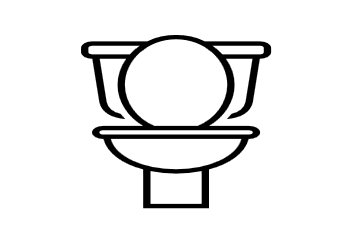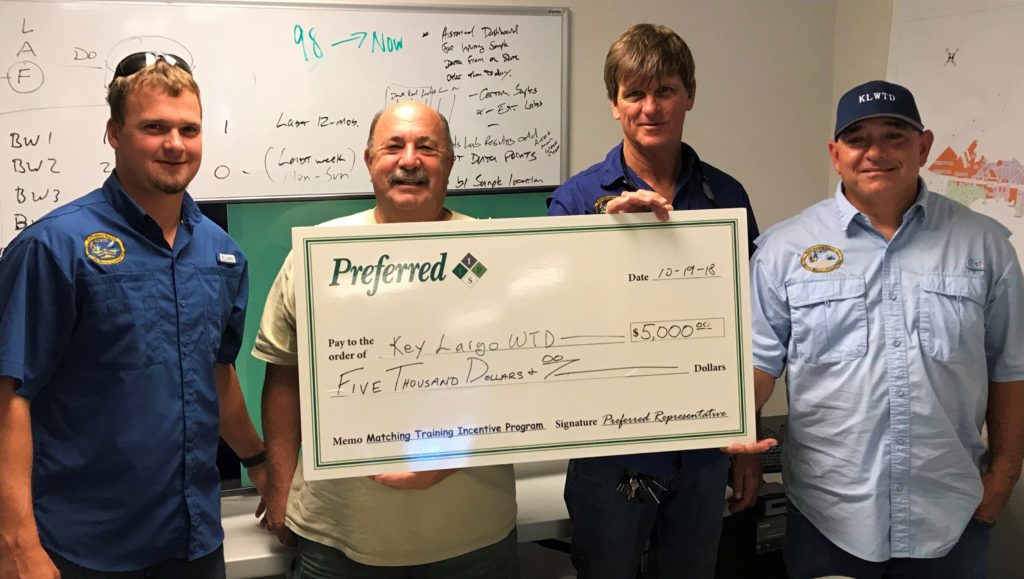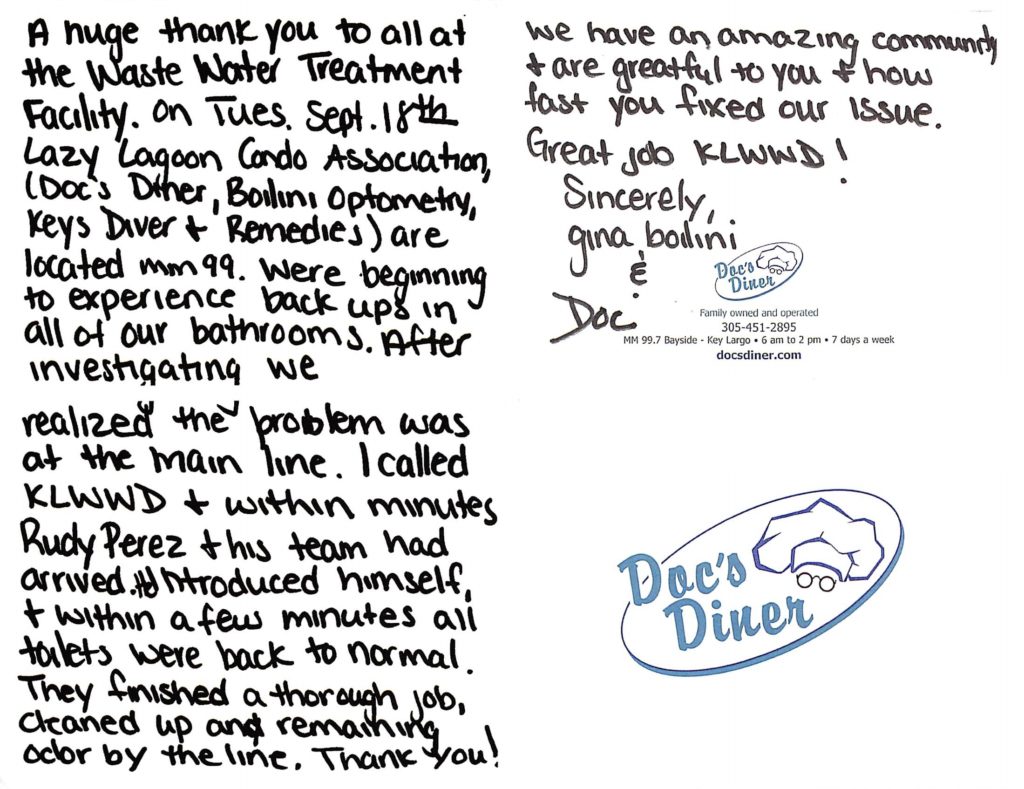KLWTD Solar Energy Project
January 18, 2023
The Key Largo Wastewater Treatment District completed its solar energy project in December 2022. Former Commissioner Steve Gibbs was a leading supporter of the KLWTD solar energy project. The FDEP Stewardship grant program provided $3,201,220 funding for the solar project.
Phase 1 of the solar project, placed into service in August of 2019, consisted of installation of solar arrays at the Wastewater Treatment Plant (WWTP) above the disinfection basin and on the roof of the Operations building. This phase consisted of 331 solar panels with an output of 124 kWp.
Phase 2 of the solar project included additional solar arrays at the WWTP for a total of 1,086 panels with a total output of 339 kWp. Phase 2 also included 72 panels on the roof of the Administration Building, with an output of 25 kWp.
Phase 3 of the project included installation of solar arrays at the District’s 5 full-size vacuum pump stations for, a total of 508 panels, with an output of 175kWp
With a total output of 663 kWp, the KLWTD solar output is greater than any other installation in the Keys. Using the current cost of power, the anticipated annual savings is approximately $175,000. The solar array above the disinfection basin also provides shade, reducing the amount of chlorine needed, saving an additional $13,000 annually for a total savings of $188,000 per year. The useful life of the solar panels is estimated to be 40 years and over that time the savings realized by the district will be in excess of $7.5 M.
Public Service Announcement
Key Largo Wastewater Treatment District needs your cooperation to protect the wastewater system particularly now due to the current COVID-19 outbreak. People are cleaning and disinfecting more frequently with bleach wipes and potentially substituting other items for toilet paper, such as baby wipes and paper towels.
KLWTD is asking customers to throw these items in the trash, not flush them down the toilet. These items do not break down in the sewer system and can cause significant clogs that could lead to equipment failures and treatment plant issues.
It is important to only dispose of toilet paper and human waste in the toilet. Otherwise, it can cause costly clogs or back-ups in your sewer system.
Here is a list of items that should never be flushed down the toilet:
WHAT NOT TO FLUSH:
- Personal Wipes (and other products even if marked “flushable”)
- Wet Wipes / Baby Wipes / Makeup Removal Wipes
- Feminine Products / Sanitary Napkins or Tampons
- Disposable Diapers
- Cat Litter and any other pet waste material
- Paper Towels / Facial Tissues
- Cotton Swabs / Cotton Balls
- Socks, Rags or Cloths
- Dental floss / Dental picks / Toothpicks
- Medicine / Vitamins
- Cigarettes / Cigar Butts / Chewing Tobacco
- Coffee Grinds
- Gravel / Sand
- Aquarium Stone
- Seafood Shells
- Flammable or Explosive Materials
- Plastic / Glass / Metal / Aluminum
- Lubricating Oil, Grease, Paint, Cooking Oil
- Chemicals
- Gasoline or Diesel

QUÉ NO ENJUAGAR:
- Toallitas personales (y otros productos, incluso si están marcados como “desechables”)
- Productos femeninos o Tampones
- Arena para Gatos y cualquier otro material de desecho para mascotas.
- Toallas de Papel
- Hisopos de algodón / Bolas de algodón
- Calcetines, trapos o paños
- Hilo dental / Palillos dentales / Palillos de dientes
- Medicina / Vitaminas
- Cigarrillos / Cigarros / Tabaco de mascar
- Café molido
- Grava / Arena
- Piedras de Acuario
- Concha’s de Marsico
- Materiales inflamables o Explosivos
- Plástico / Vidrio / Metal / Aluminio
- Lubricantes, Grasa, Pintura, Aceite De cocinar
- Productos químicos
- Gasolina o Diesel
* Tenga en cuenta: Ninguno de los anteriores debe pasar por el inodoro, la lavandería o los desagües del fregadero

Safety Training Incentive Program
Chris Kittelson, of Preferred Governmental Insurance Trust presented the Key Largo Wastewater Treatment District with a $5,000 check on Friday, October 19th, as part of an annual Matching Incentive Training Program. The District was reimbursed for specialized training courses that employees attend monthly, and other safety related expenses.




